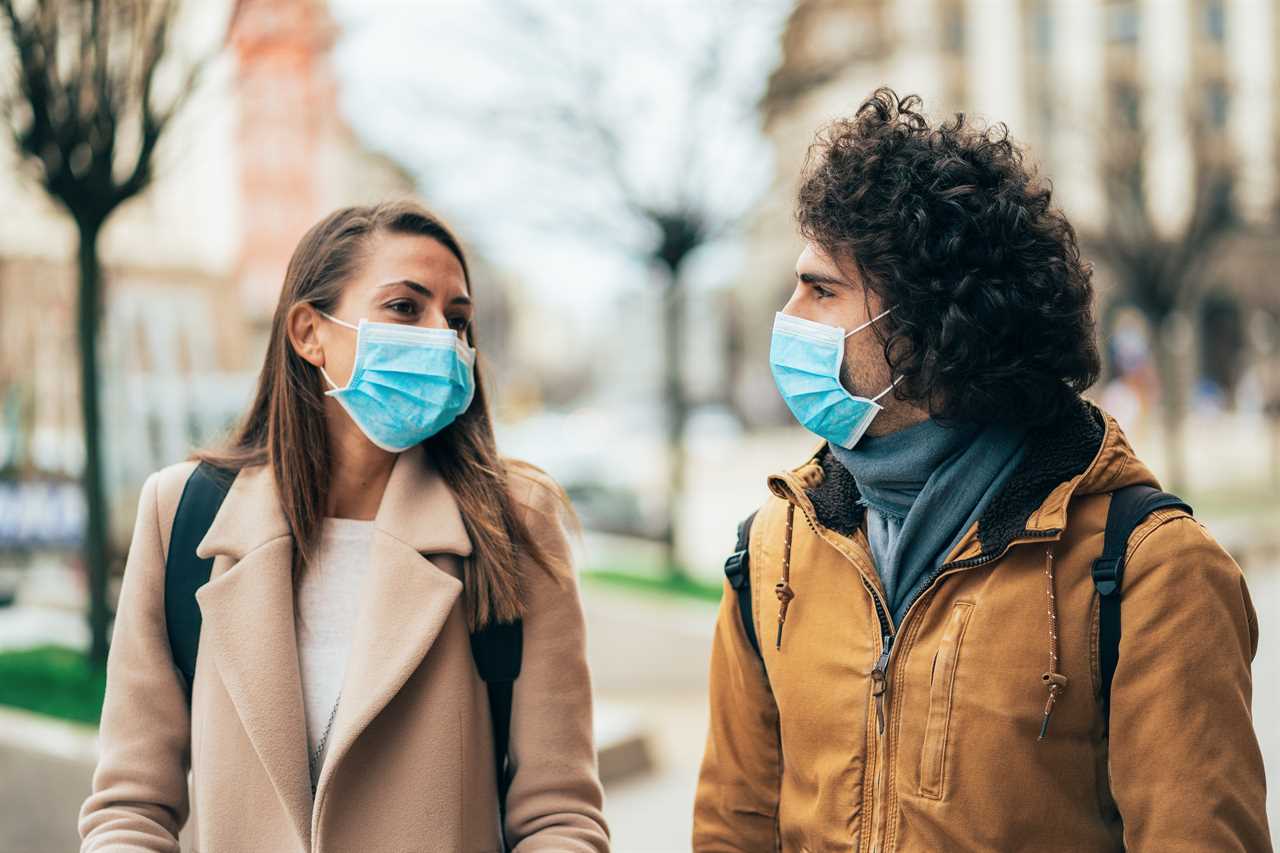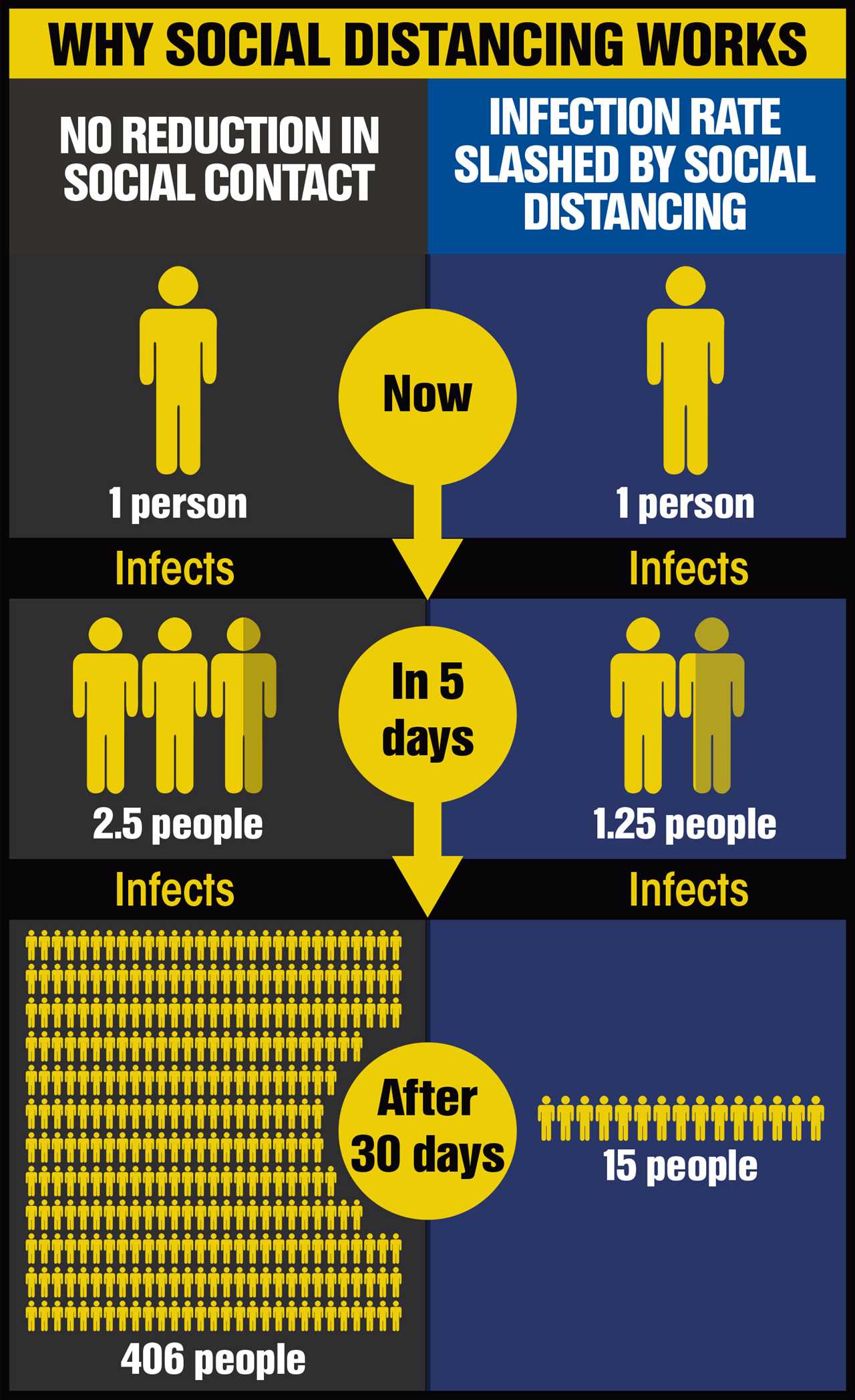THE Covid-19 pandemic is continuing into 2022, but with the new Omicron variant in tow.
Scientists and the CDC say this variant is less severe than those spread previously but spreads at a rate faster than its predecessors.

Can asymptomatic patients spread coronavirus?
Asymptomatic coronavirus patients can spread coronavirus, the World Health Organisation (WHO) has said. The website writes:
“Infected people can transmit the virus both when they have symptoms and when they don’t have symptoms. This is why it is important that all people who are infected are identified by testing, isolated, and, depending on the severity of their disease, receive medical care. Even people confirmed to have Covid-19 but who do not have symptoms should be isolated to limit their contact with others. These measures break chains of transmission.”
The Omicron variant spreads at a rate faster than the previous Delta variant and can infect vaccinated and unvaccinated individuals alike.
However, for those who are vaccinated, symptoms are much milder.

What does it mean to be asymptomatic?
Asymptomatic means a person has been tested positive but has no symptoms, and does not go on to develop symptoms, WHO epidemiologist Maria DeJoseph Van Kerkhove says.
She adds: “A number of people are reported asymptomatic, actually may have mild disease. They may go on to develop symptoms. They may not quite register that they are sick. They can feel just a little bit unwell or under the weather, or fatigued. Some of those individuals we would classify as pre-symptomatic.”
How long can asymptomatic coronavirus carriers infect others for?
The exact rate of asymptomatic transmission is unknown, but inferences are it’s very high.
The CDC believes people who have been infected with Covid-19 are at their most contagious at the peak of their symptoms.
This means the days people feel their worst ― that may include cough or a fever ― are when they’re most likely to spread the virus.
But that does not mean it is the only time they are contagious.
People can “shed” or emit the virus in the incubation period before they show symptoms.
Research has found those infected with Covid-19 can take a staggering five days for coronavirus symptoms to show – and they can still appear after the quarantine period.
The study, from the Johns Hopkins Bloomberg School of Public Health in the US, found the average incubation period is 5.1 days.
And they say that almost all – 97.5 per cent – of those who develop symptoms appeared to do so within 11.5 days of infection.
In another study, scientists from the United States, France, China and Hong Kong, found that time between cases in a chain of transmission is less than a week.
Their findings, published in the journal Emerging Infectious Diseases, also showed more than ten per cent of patients are infected by somebody who has the virus but does not yet have symptoms.
Children are often asymptomatic carriers of Covid-19 and can pose a particular risk to those closest to them.
Dr. Faheem Younus, chief of infectious diseases at the University of Maryland Upper Chesapeake Health, told HuffPost: “The longer the duration, the closer the contact, the lower the host’s immunity, the higher the risk of catching the infection.”
In general, individuals who are suspected of having Covid-19 are asked to remain in isolation for at least three days after they have recovered and for at least a week after their symptoms first appeared.






